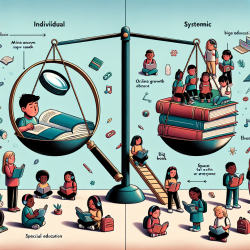Unlock the Secrets of Blood Donation: What Greece Can Teach Us!
As Special Education Directors, we often find ourselves in roles that require leadership, strategic planning, and the ability to adapt to new information. While our primary focus is on ensuring the best outcomes for students, we can draw valuable lessons from diverse fields, including the realm of blood donation. A recent study on blood donation in Greece offers insights that can be applied to our work in special education, particularly in improving recruitment and retention strategies.
Understanding the Greek Blood Donation System
The research article titled Factors that motivate and hinder blood donation in Greece delves into the challenges and motivations behind blood donation in Greece. The study identifies key factors that influence donation behavior, such as demographic characteristics, perceived risks, and the effectiveness of incentives.
Key Findings and Their Implications
One of the significant findings is that women and young people are less likely to donate blood in Greece. This is attributed to medical reasons, such as low body weight and anemia, particularly among women of childbearing age. The study suggests that providing iron supplements and personalized support could increase donation rates among women. Similarly, understanding the motivations of young people could lead to more effective recruitment programs.
Another critical insight is the role of reminders and incentives in encouraging donations. Many potential donors reported not donating simply because they were not reminded. Implementing effective communication strategies, such as electronic reminders, could significantly boost donor retention.
Applying These Insights to Special Education
As Special Education Directors, we can draw parallels between these findings and our efforts to recruit and retain qualified staff, such as therapists and special educators. Here are some strategies we can adopt:
- Targeted Recruitment: Just as the study suggests targeting women and young people, we can focus on recruiting diverse candidates who bring unique perspectives and skills to our programs.
- Effective Communication: Implementing regular reminders and updates can keep potential staff engaged and informed, much like reminders encourage blood donations.
- Incentives and Support: Offering professional development opportunities, mentorship programs, and other incentives can motivate staff to join and remain in our district.
Encouraging Further Research
The study highlights the importance of ongoing research to understand the motivations and barriers faced by potential donors. Similarly, in special education, continuous research and data analysis can help us refine our strategies and improve outcomes for students.
To read the original research paper, please follow this link: Factors that motivate and hinder blood donation in Greece.










